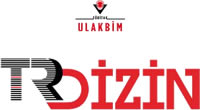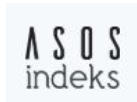Coğrafya Öğretmenlerinin Teknolojik Pedagojik Alan Bilgisi (TPAB) Yeterliklerini Ölçmeye Yönelik Hazırlanan Bir Başarı Testinin Geliştirilmesi
DOI:
https://doi.org/10.15659/ankad.v4i3.107Anahtar Kelimeler:
Başarı testi geliştirme- coğrafya eğitimi- teknolojik pedagojik alan bilgisiÖzet
Nicel araştırma yaklaşımlarından biri olan tarama modelinin kullanıldığı bu çalışmanın amacı TPAB (Teknolojik Pedagojik Alan Bilgisi) modeline dayalı yeterlikleri kazandırmaya yönelik olarak oluşturulan bir hizmetiçi eğitim programında ön test ve son test olarak kullanılmak üzere geçerliği ve güvenirliği sağlanmış bir başarı testi geliştirmektir. Bu kapsamda ilk olarak testin geliştirilme amacı belirlenmiş, daha sonra ise “Öğretmenlik mesleği için Teknopedagojik Eğitim Yeterlilikleri ve Göstergeleri” ne uygun olarak 60 soruluk bir madde havuzu oluşturulmuştur. Başarı testinin kapsam geçerliği için bir belirtke tablosu hazırlanmıştır. Alınan uzman görüşleri doğrultusunda 25 soruda değişiklik yapılmış 10 soru başarı testinden çıkarılmış ve sonuçta 50 soruluk taslak başarı testi hazırlanmıştır. Hazırlanan başarı testi daha önce TPAB modeline dayalı yeterlikleri kazandırmaya yönelik tasarlanan bir hizmetiçi eğitim programına katılan 112 coğrafya öğretmenine pilot çalışma olarak uygulanmıştır. Sonrasında alınan cevaplara göre madde analizleri yapılmış ve bu analizler neticesinde 5 soru daha başarı testinden çıkarılmıştır. Nihai başarı testinin ortalama güçlük indeksi 0,52; ortalama madde ayırt edicilik indeksi de 0,51 olarak hesaplanmıştır. Başarı testinin güvenirliğini belirlemek için ise Pearson Momentler Çarpımı Korelasyon Katsayısı formülü kullanılarak iki ölçüm arasındaki korelasyon 0,765 olarak hesaplanmış, bu değer Spearman-Brown formülü ile düzeltilerek tüm testin güvenirlik katsayısı 0,863 olarak belirlenmiştir. Sonuç olarak coğrafya öğretmenlerinin TPAB yeterliklerini ölçmeye yarayan ortalama güçlükte, ayırt edicilik değeri yüksek, geçerli ve güvenilir bir başarı testi geliştirilmiştir. Bu başarı testi araştırmacının doktora tezinde kullandığı veri toplama araçlarından sadece bir tanesidir.
Referanslar
Adıgüzel, A. (2005). Avrupa birliğine uyum sürecinde öğretmen niteliklerinde yeni bir boyut: Bilgi okuryazarlığı. Milli Eğitim Dergisi, 33(167), 53-70.
Altun, T. (2013). Examination of classroom teachers’ technological pedagogical and content knowledge on the basis of their demographic profiles. Croatian Journal of Education, 15(2), 365-397.
Anastasi, A. (1997). Psychological testing (7th edition). New Jersey: Prentice Hall INC.
Bal, M.S. & Karademir, N. (2013). Sosyal bilgiler öğretmenlerinin teknolojik pedagojik alan bilgisi (TPAB) konusunda öz-değerlendirme seviyelerinin belirlenmesi. Pamukkale Üniversitesi Eğitim Fakültesi Dergisi, 34(11), 15-32.
Bass, R. (2000). Technology, evaluation, and the visibility of teaching and learning. New Directions for Teaching and Learning, 83, 35-50.
Baykul, Y. (2000). Eğitimde ve psikolojide ölçme: klasik test teorisi ve uygulaması. Ankara: ÖSYM Yayınları.
Beşoluk, Ş. & Horzum, M. (2011). Öğretmen adaylarının meslek bilgisi, alan bilgisi dersleri ve öğretmen olma isteğine ilişkin görüşleri. Ankara Üniversitesi Eğitim Bilimleri Fakültesi Dergisi, 44 (1), 17-50. doi: 10.1501/Egifak_00000012
Büyüköztürk Ş., Çakmak, E. K., Akgün Ö. E., Karadeniz Ş. & Demirel F. (2012). Bilimsel araştırma yöntemleri (12. Baskı). Ankara: Pegem Akademi
Canpolat, N. (2011). Matematik öğretmen adaylarının teknolojik pedagojik alan bilgileri ile düşünme stilleri arasındaki ilişkinin incelenmesi. Doktora Tezi. Selçuk Üniversitesi Eğitim Bilimleri Enstitüsü, Konya.
Crocker, L., & Algina, J. (1986). Introduction to classical and modern test theory. Orlando, FL: Harcourt Brace Jovanovich College Publisher
Demirel, Ö.(2007). Öğretimde planlama ve değerlendirme. Ankara: Pegem Akademi.
Dikkartin Övez, F.T. & Akyüz, G. (2013). İlköğretim matematik öğretmeni adaylarının teknolojik pedagojik alan bilgisi yapılarının modellenmesi. Eğitim ve Bilim, 38(170), 321-334.
Doğan, N. (2007). Çoktan seçmeli testler. (Ed. H. Atılgan) Eğitimde ölçme ve değerlendirme (5. Baskı) içinde (s. 23-80). Ankara: Anı.
Doğru, E. & Aydın, F. (2017). Coğrafya öğretmenlerinin teknolojik pedagojik alan bilgisi ile ilgili yeterliliklerinin incelenmesi. Journal of History Culture and Art Research, 6(2), 485-506. doi:http://dx.doi.org/10.7596/taksad.v6i2.686
Ellez, M. (2011). Ölçme araçlarında bulunması gereken özellikler. A. Tanrıöğen (Ed.), Bilimsel Araştırma Yöntemleri içinde (s. 165-190). Ankara: Anı.
Gömleksiz, M. & Erkan, S. (2010). Eğitimde ölçme ve değerlendirme (2. Baskı). Ankara: Nobel.
Kabakçı Yurdakul, I., Odabaşı, F., Kılıçer, K., Çoklar, A., Birinci, G. & Kurt, A. (2014). Ulusal standartlar açısından teknopedagojik eğitime dayalı öğretmen yeterliklerinin oluşturulması. İlköğretim Online, 13(4), 1185-1202.
http://dx.doi.org/10.17051/io.2014.76490
Karakaya, İ. (2011). Bilimsel araştırma yöntemleri. A. Tanrıöğen (Ed.), Bilimsel Araştırma Yöntemleri içinde (s. 55-84). Ankara: Anı.
Karasar, N. (2011). Bilimsel araştırma yöntemi (22.basım). Ankara: Nobel
Kaya, Z., Kaya, O.N. & Emre, İ. (2013).Teknolojik pedagojik alan bilgisi (TPAB) ölçeği’nin Türkçeye uyarlanması. Kuram ve Uygulamada Eğitim Bilimleri, 13(4), 2355-2377.
Kayak, S. & Orhan, F. (2009). Bilişim teknolojileri öğretmenlerinin görev yaptıkları okullarda üstlendikleri sorumlulukların incelenmesi. 1st International Educational Research Conference’da sunulmuş bildiri, Çanakkale, Türkiye.
Koehler M.J., Mishra, P. &Yahya, K. (2007). Tracing the development of teacher knowledge in a design seminar: integrating content, pedagogy, and technology. Computers & Education, 49(3), 740–762.
Kıylık, D. (2016). Sınıf öğretmeni adaylarının teknolojik pedagojik alan bilgisi (TPAB) seviyelerinin çeşitli değişkenlere göre incelenmesi, Yüksek Lisans Tezi, Yüzüncü Yıl Üniversitesi Eğitim Bilimleri Enstitüsü, Van.
MEB (2020). Geliştirilen ve güncellenen standart kriterlere uygun olarak hazırlanan örnek hizmetiçi eğitim programları. http://oygm.meb.gov.tr/dosyalar/StPrg/ sayfasından erişilmiştir.
MEB, (2018). Coğrafya Dersi Öğretim Programı. Ankara. 18 Şubat 2020 tarihinde http://mufredat.meb.gov.tr/Dosyalar/2018120203724482Cografya%20dop%20pdf.pdf adresinden erişilmiştir.
Mishra, P. & Koehler, M. J. (2006). Technological pedagogical content knowledge: A new framework for teacher knowledge. Teacher College Record, 108(6), 1017–1054.
ÖYEGM (2011). Coğrafya öğretmeni özel alan yeterlikleri. 18 Şubat 2020 tarihinde https://oygm.meb.gov.tr/meb_iys_dosyalar/2017_12/13160431_COYRAFYA.pdf sayfasından erişilmiştir.
Özgüven, İ. E. (2007). Psikolojik testler. Ankara: Pdrem Yayınları.
Thorndike, E. L. (1971). The Fundamentals of learning. NewYork: AMS Press.
Shulmann, L. S. (1986). Those who understand: knowledge growth in teaching. Educational Researcher, 15(2), 4-14.
Su, X., Huang, X., Zhou C. & Chang, M. (2017). Ortaöğretim coğrafya öğretmenleri için bir teknolojik pedagojik alan bilgisi (TPAB) ölçeği. Eğitim ve Bilim, 42(190), 325-341.
Yayınlanmış
Nasıl Atıf Yapılır
Sayı
Bölüm
Lisans
Telif Hakkı (c) 2024 Anadolu Kültürel Araştırmalar Dergisi (ANKAD)

Bu çalışma Creative Commons Attribution-NonCommercial 4.0 International License ile lisanslanmıştır.













